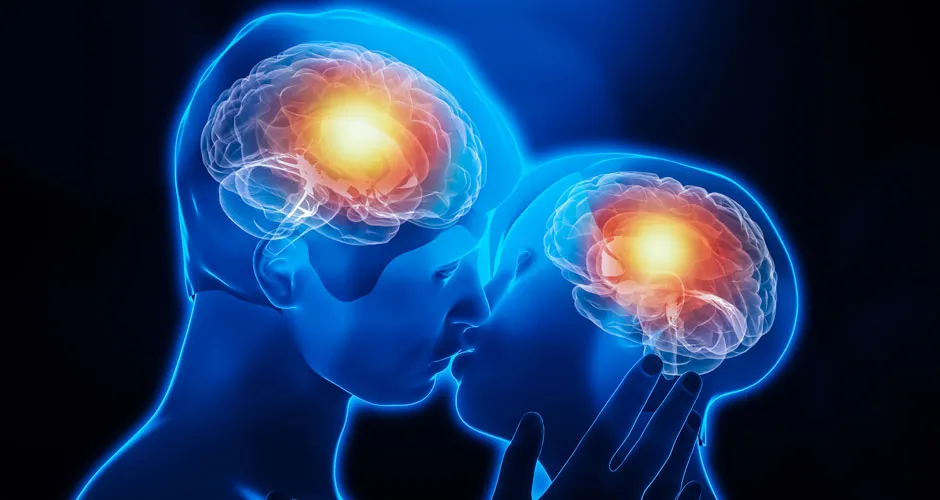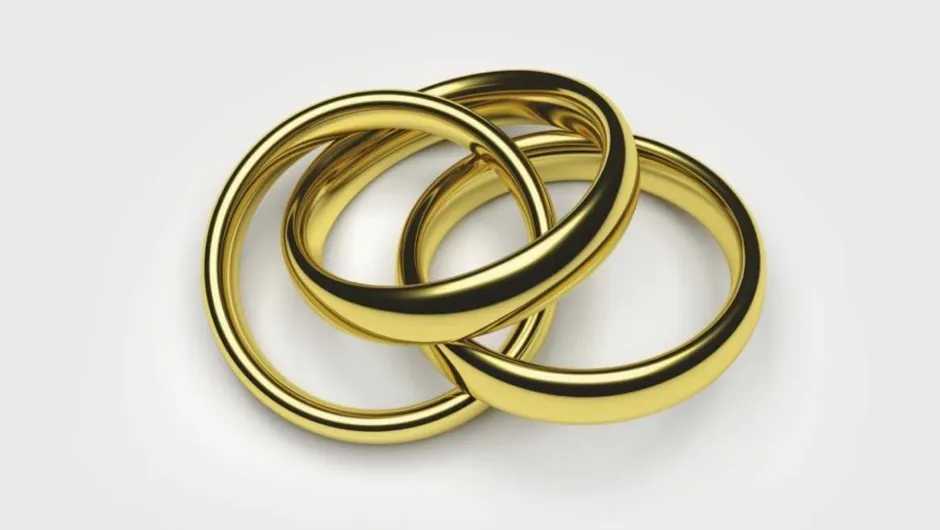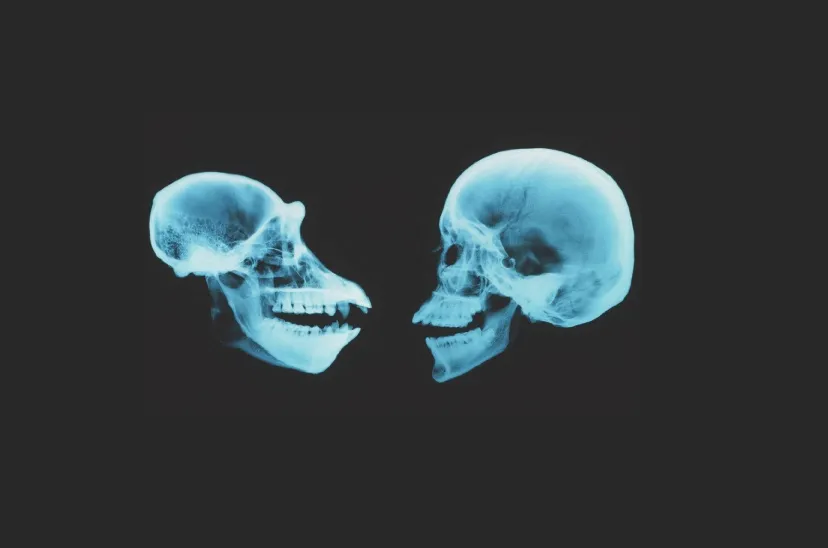1
Do opposites really attract?
Asked by: Bethan Roberts, Sheffield

Although it’s true for two sides of a magnet, so far in people, the science says no. In fact, since the mid-60s scientists have been studying this, and found that not only are people attracted to those with similar views but attraction actually increases the more your attitudes align with other people.
More recently, in 2008 researchers conducted a large review of the studies on attraction and similarity. Together, they looked at over 300 studies and 35,000 people and they found no strong evidence of opposites attracting.
Scientists investigated this further in 2013 and while they still concluded that people are more attracted to those with similar attitudes, they also highlighted that negative similarities led to avoidance, rather than attraction.
- Frankie Macpherson
2
Is being single bad for your health?
Asked by: Paul Evans, Barking

It is sometimes argued that being in a relationship can offer health benefits. The research cited in support of this argument says that those who are married are on average healthier than those who are not.
However, the situation is likely to be much more complex than this. For example, it is not clear whether being in a relationship offers health benefits or whether there are other explanations for this association.
Furthermore, whereas being in a relationship may be linked to certain health advantages, it could bring health risks too. Research suggests, for example, that people who are married are more likely to be overweight than those who are not.
Finally, one size does not fit all. Whereas being in a happy relationship may bring certain advantages, being in a dysfunctional one is unlikely to do so.
- Alice Gregory
3
Why are lips red?
Asked by: Matthew Merton, Bournemouth

In the 1960s, zoologist Desmond Morris suggested that a woman’s lips evolved to signal sexual receptiveness, by mimicking increased blood flow to the genitalia. Research has shown that men do find the colour red attractive, but a 2012 study at the University of Kent found that men didn’t prefer a red vulva, specifically, over a pink one. So lip colour might just be a consequence of the thinner skin there, which improves sensitivity.
- Luis Villazon
4
Has anybody had sex in space?
Asked by: Adrian Hayes, Ireland

No. Spacecraft are too cramped and too public to keep any unauthorised zero-g shenanigans secret, and being caught would almost certainly guarantee that the participants would never go into space again. Officially sanctioned research has begun into two-person sleeping bags that might allow weightless sex, but so far nobody has actually tested them.
- Luis Villazon
5
Why don’t humans have a penis bone?
Asked by: Claire Russell, Leicester

The penis bone or ‘baculum’ is common to lots of placental mammals but by no means all of them. It seems to have evolved independently nine times in different mammal lineages but it has also subsequently been lost in many cases. Among primates, humans are the only ones without a baculum, although it is tiny in gorillas and chimpanzees.
The baculum allows prolonged penetration and it is normally only present in animals that mate for longer than three minutes. Lengthy sex sessions are an adaptation to maximise the male’s chance of impregnating the female. Humans evolved monogamy as a reproductive strategy, which – along with other social rules – reduces the risk of females mating with rival males. Men can therefore get away with shorter copulation times.
- Luis Villazon
6
Are humans naturally monogamous?
Asked by: Lois Aled, Vale of Glamorgan

Humans aren’t sexually monogamous in the sense that many birds are. Geese form lifelong couples and virtually never mate with anyone except their partner. We are termed ‘socially monogamous’ by biologists, which means that we usually live as couples, but the relationships aren’t permanent and some sex occurs outside the relationship.
There are three main explanations for why social monogamy evolved in humans, and biologists are still arguing which is the most important. It may be because human babies need a lot of looking after and stable couples can share the parenting burden. Or it could be because men want to stay close to prevent their partners from cheating. And it could also be a strategy that women evolved to discourage men from killing infants that they suspected were not theirs.
Monogamy in humans is beneficial because it increases the chances of raising offspring, but it is actually very rare in mammals – less than 10 per cent of mammal species are monogamous, compared with 90 per cent of bird species. Even in primates, where it is more common, only about a quarter of species are monogamous. Our early ape ancestors weren’t monogamous and the practice probably didn’t take off until Homo erectus emerged, around 1.9 million years ago.
- Luis Villazon
Listen to the Science Focus Podcast:
7
Why are people only attracted to certain other people?
Asked by: Ravi Teja, London

Men tend to seek more short-term relationships and look for physical attractiveness. Women also seek good looking short-term mates, but for long-term partners they’re more interested in resources, seeking a man who will provide for them and any children. There are trade-offs between looks and health, and the desire to find someone similar in education, religion, intelligence, and wanting a family. Few people are aware of these underlying reasons, yet the same effects have been measured in 37 cultures across six continents.
As for sexual orientation, many genetic, hormonal and other effects contribute to people finding others of their own sex more attractive.
- Susan Blackmore
8
Why do humans show affection by kissing?
Asked by: Irina Bylchenko, London

It’s not just humans that enjoy a smooch; lots of animals have courtship behaviours involving the mouth. Pigeons touch beaks, cats and dogs nuzzle each other, male fruit flies lick the females. At the most basic level, kissing is just a way of tasting and touching a potential mate, as part of the process of assessing suitability.
In primates though, kissing might also be a behaviour that has transferred from maternal feeding. We depend for our first meals on our ability to suckle, and the positive feedback mechanisms that evolved to encourage infants to do this last into adulthood. Kissing triggers lots of hormone changes, including raising oxytocin levels – the hormone that creates a sense of attachment.
Kissing is virtually universal in all human cultures, so it’s possible that it is instinctive. But on the other hand, we generally have sex face to face with our mouths already close together, so it’s an easy behaviour to stumble upon.
- Luis Villazon
9
Are we the only species with females that experience orgasm?
Asked by: Andrea R, Dublin

All female mammals have a clitoris, the sole purpose of which is to react to sexual stimulation, and presumably this stimulation has evolved to be pleasurable for most species. But establishing whether sexual pleasure ever actually tips over into orgasm is hard.
Female chimps, macaque monkeys and cows have all been stimulated in the lab to the point of experiencing vaginal and uterine contractions, which does suggest that other female animals are at least capable of orgasm. Whether they regularly have them during normal copulation is much less certain; most animal sex is very brief and often quite violent.
Beyond mammals, the case for a female orgasm is more tenuous. Reptiles have penetrative sex and presumably would benefit from orgasms just as much as mammals, but I don’t think anyone has ever tried to detect the female orgasm in a crocodile or a snake. Most other vertebrates use external fertilisation; the female deposits her eggs and the male squirts them with sperm. It’s hard to see how this would trigger an orgasm in even the most excitable female. Those invertebrates that practise internal fertilisation don’t have enough of a nervous system for pleasure and orgasm to be meaningful labels.
- Luis Villazon
Read more animal love Q&As:
10
Is there any science behind love at first sight?

When people describe how they met their partner, they’ll often describe how their eyes met across the room, or their face stood out from the crowd. Now, scientists believe that when people meet a potential partner, their immediate eye movements could be a telltale sign of whether they’re after love or lust.
Researchers from the University of Chicago analyzed people’s eye movements as they viewed black and white photos of both couples and attractive strangers and judged whether the people they saw were eliciting feelings of sexual desire or romantic love.
The results revealed an interesting pattern; when the subjects judged a stranger as depicting feelings or romantic love, their eyes stayed fixed on the stranger’s face. However, when the subjects felt the photo was exuding sexual desire, their eyes strayed over the rest of stranger’s body.
“By identifying eye patterns that are specific to love-related stimuli, the study may contribute to the development of a biomarker that differentiates feelings of romantic love versus sexual desire,” says John Cacioppo, who coauthored the research. “An eye-tracking model may offer a new avenue of diagnosis for routine clinical exams in psychiatry and/or couple therapy.”
What’s more, the scientists found that the subject’s judgment can occur in just half a second, suggesting the way we categorize whether we feel lust or love for new people is innately automated.
11
Why don’t humans have a mating season?
Asked by: Suttiwit Sukpinit, Thailand

Most animals time their reproductive season so that young are born or hatch when there is more food available and the weather isn’t so harsh. There are exceptions, though. Most dog breeds go into heat twice a year and many rodents reproduce almost continuously through the year. In some primates, social factors are more important than food availability.
Female chimpanzees don’t advertise when they are fertile and have promiscuous sex, regardless. This is thought to reduce the rate of infanticide from unrelated males, by making it hard for them to be sure whether or not they are the father of any offspring and this may have been important in humans too.
Human sexual behaviour does vary subtly throughout the menstrual cycle, though. A 2007 study at the University of New Mexico found that lap dancers earned more money when they were fertile; perhaps because they were unconsciously acting sexier.
- Luis Villazon
12
Is sexuality learned or genetic?
Asked by: Anonymous

Studies with identical twins have shown some evidence for an inherited component to homosexuality. But that’s not quite the same thing as a ‘gay gene’. For example, a 1997 study at the University of Toronto showed that each older brother a man has increases his chance of being homosexual.
The inherited component of homosexuality seems to be much weaker in women than men but culture, lifestyle and early sexual experiences are probably more significant than genetics for both genders. Certainly, upbringing and culture have a big impact on the way that people acknowledge and define their own sexuality.
-Hannah Ashworth
13
>Is love more likely to bloom in hot weather?
Asked by: Katrina O’Brien, Exeter

It may flourish when the Sun shines. In a recent French experiment, five 20-year-old men set out to ask for women’s phone numbers, approaching those walking alone in the street who appeared to be aged 18-25. When the Sun was shining, 22 per cent of the women gave out their phone numbers, compared with 14 per cent on cloudy days.
Bright sunshine lowers levels of melatonin (the sleep hormone) and increases levels of serotonin in the brain, leading to a better mood. So probably both the men and women felt more cheerful and more inclined to take a chance. The temperature was about the same on the different days so it was likely the sun, not the heat, that did the trick.
- Susan Blackmore
14
Why do we close our eyes when we kiss?

Most people can’t focus on anything as close as a face at kissing distance so closing your eyes saves them from looking at a distracting blur or the strain of trying to focus.
Kissing can also make us feel vulnerable or self-conscious and closing your eyes is a way of making yourself more relaxed. It’s like turning out the light before having sex, but in miniature.
- Maddy Staple
15
Do men need sex more than women?

Need? No. Really, really want? Yes. The cost of reproduction is much lower for a man than a woman. He doesn’t need to carry a foetus around inside him for nine months, nourishing it from his own food supply. Nor does he need to risk his life giving birth to it. So a man’s reproductive fitness is generally improved by having many different sexual partners and this requires a high sex drive.
A woman is better served by being very fussy in her choice of mate and using sex as a bargaining counter to ensure his loyalty and attention. This only works if she can be relaxed enough about sex to withhold it when it is to her advantage to do so. This is not a trick that most men can manage.
- Louise Ridley
16
Are there chemical formulae for emotions like love, hate, anger, joy and jealousy?
Asked by: Kevin McGrath, London

No. Although chemicals play an important part in mediating our emotional response, the interaction of various hormones with our current state of mind and memories is much too complicated to be captured in a simple formula.
If you inject someone with adrenalin, they may feel the physiological sensation of anxiety, but whether this translates to the emotion of fear, anger or sexual arousal will depend on the circumstances.
- Luis Villazon
17
Is it possible for humans and chimpanzees to interbreed?
Asked by: Pauline Hetherington, Surrey

Genetic analysis suggests there may have been a long period of cross-breeding between early ancestors of the humans and chimpanzees, before they finally split into the Homo and Pan (chimp) genera around six million years ago. But today, although humans and chimpanzees share 99 per cent of the DNA sequences that code for proteins, that DNA is packaged differently into the chromosomes.
The human chromosome number two is actually two ape chromosomes joined end-to-end, and nine other chromosomes have inverted sequences of genes compared with their equivalents in chimps. Humans and chimps also have differences in their individual genes that are far bigger than the differences between any two unrelated humans.
These are big obstacles, but not necessarily insurmountable. Other animals with comparable genetic differences, such as zebras and horses, have bred successfully in the past, although the offspring are almost always sterile. There are documented cases of Soviet experiments in the 1920s where artificial insemination was attempted using female chimps and human sperm. However, none of these experiments resulted in a pregnancy, much less the birth of a ‘humanzee’. There are various urban legends of other later experiments in different labs worldwide, but there’s no evidence that the result was ever any different.
- Luis Villazon
Follow @sciencefocusQA for more amazing Q&As.
Subscribe to BBC Science Focus get the latest Q&As delivered to your door, or download the BBC Science Focus app to read it on your smartphone or tablet. Find out more
Follow Science Focus onTwitter,Facebook, Instagramand Flipboard